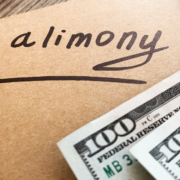Finality in Divorce
Sections 3331-3333 of the Divorce Code discuss the potential to review a divorce after a decree has been issued. The general policy is in favor of finality to avoid endless litigation, however certain circumstances will warrant reconsideration. First, parties should act as timely as possible. Section 3331 limits attacks on decrees. An appeal is the only option where one of the parties has died. There is a two year limit to take action specifically where the party questioning the decree had knowledge of the circumstances supporting the attack and failed to timely take action. Section 3332 outlines when a decree may be opened or vacated. In general, there is a thirty day time limit to request review of an Order pursuant to 42 Pa. C.S. 5505.
Section 3332 also draws a distinction between intrinsic fraud and extrinsic fraud. Intrinsic fraud must be alleged within the thirty day time limit whereas extrinsic fraud has a time limit of five years. Intrinsic fraud refers to an issue that was adjudicated. Extrinsic fraud refers to a situation where a party was precluded from having their fair chance at adjudication altogether. Examples of extrinsic fraud include where a party was kept unaware of the proceedings or by promise of a false compromise. There is no extrinsic fraud where the party had ample opportunity to object earlier in the proceedings and simply failed to do so.




